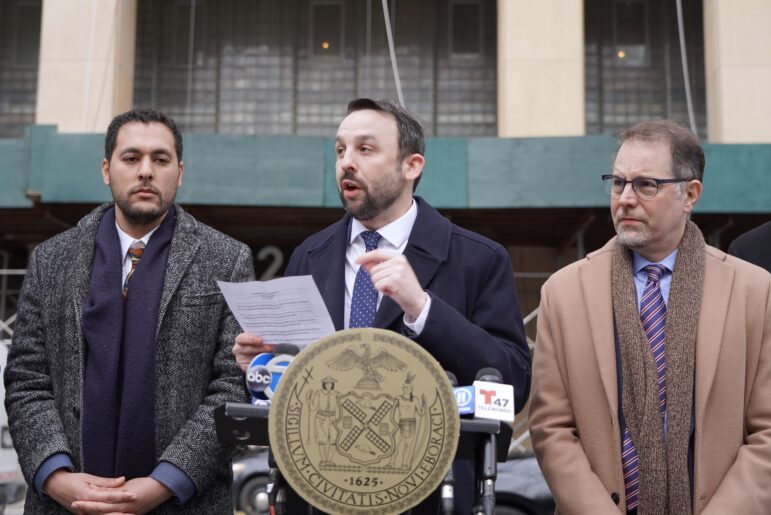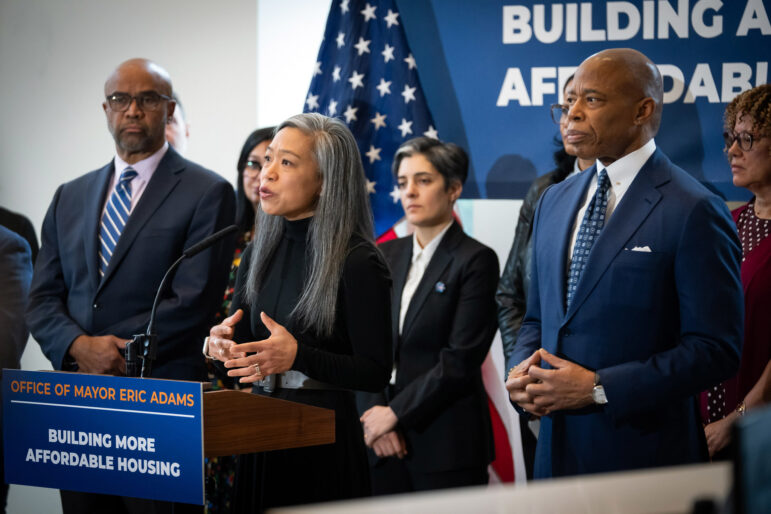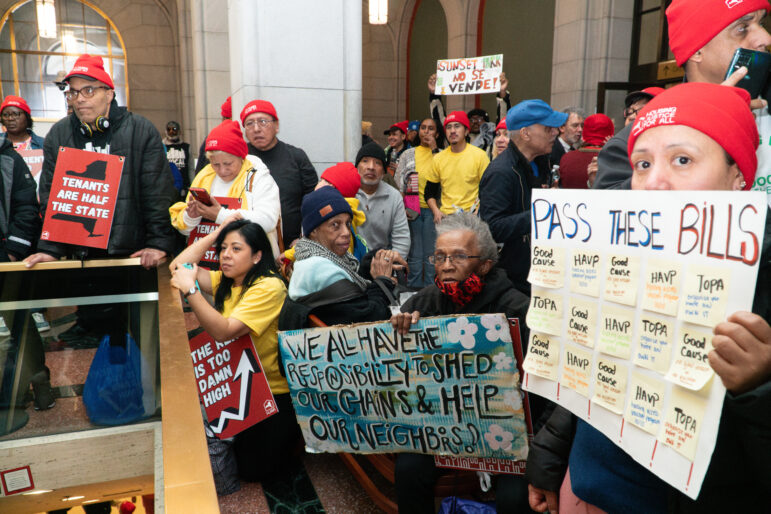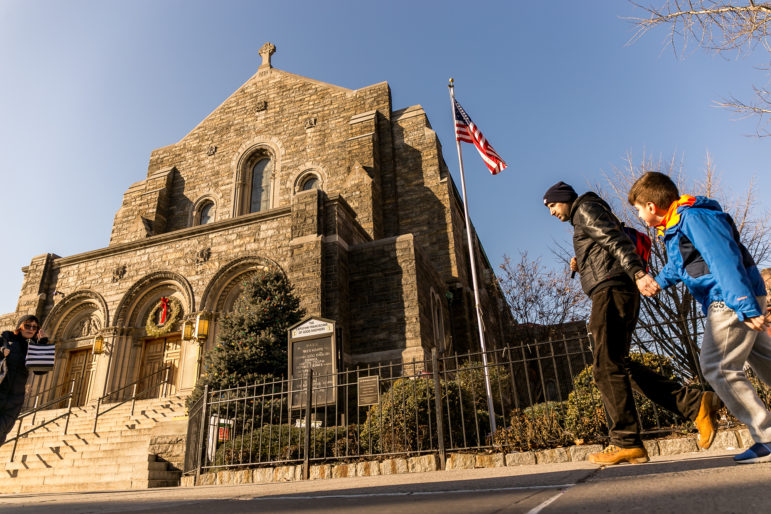“Once again, the needs of the poor have been especially shut out of the state’s moral conscience, with our government refusing to include an increase to cash assistance grants in the budget.”
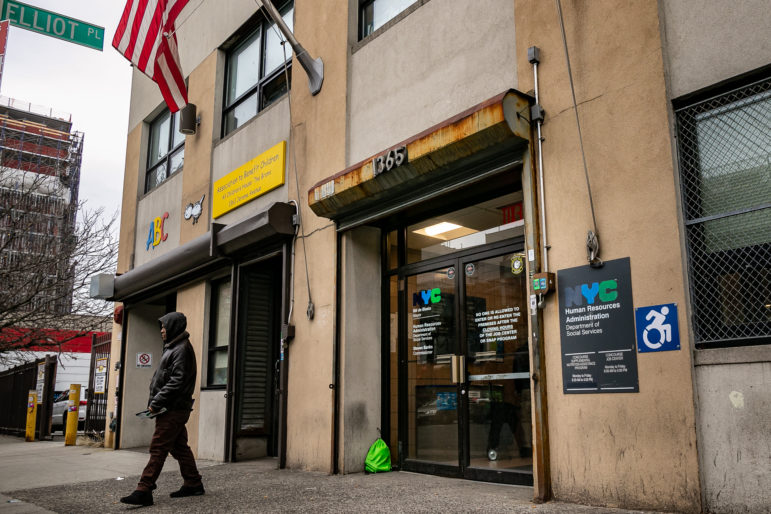
Adi Talwar
A since-shuttered public benefits office in the Bronx.The New York State Budget for Fiscal Year 2025 arrives as New Yorkers across all incomes are struggling to afford necessities like rent, food, and childcare. Once again, the needs of the poor have been especially shut out of the state’s moral conscience, with our government refusing to include an increase to cash assistance grants in the budget. This is the grant that covers what we would more commonly refer to as “public assistance” or “welfare.”
Representing a membership of nearly 170 faith and community-based organizations across New York, we at FPWA say it’s time to uphold our state’s values of equity and justice. We must confront pervasive stereotypes, including the racist “welfare queen” trope from the 1970s and the offensive “workfare” notions of the 1990s, which perpetuate harmful attitudes towards the poor. It’s time to reshape the narrative around cash assistance and who is deemed deserving of help.
Cash assistance provides direct cash aid to over 600,000 New York individuals and families with the lowest incomes—many with disabilities, health challenges, or caregiving responsibilities. Often, New Yorkers turn to cash assistance as a last resort after hardships like separation, domestic violence, homelessness, illness, or losing a family member.
Having grown up in a family that relied on cash assistance, I know this reality all too well. Shortly after my birth, my father lost his job as a NYC Transit police officer and left our family a few years later. My mother, left to raise three children on an unlivable income as a family day care provider, went on public assistance so that we could survive as a family.
Before we went on public assistance, my sisters attended “Prep for Prep”—a program dedicated to moving underserved children from public to independent schools. They received scholarships to attend a very prestigious private school. After we went on assistance, I received financial aid to attend the same school. For my mother, having all three of her children graduate from private school was an opportunity for economic advancement.
Unfortunately, the small amount of tuition she was asked to contribute to our education put us at risk of losing our public assistance. My mother made the difficult decision to prioritize our education, a choice that had a devastating financial impact on our family for many years but ultimately yielded lasting economic and social benefits.
My story may seem unique. Yet it echoes what we at FPWA hear from many cash assistance recipients today. We hear about the impossible choices recipients face, who feel “stuck” between pursuing full-time employment and losing their benefits. They want to open businesses, pursue higher education, and give back to families like theirs, but face real barriers from a system meant to provide support.
Archaic eligibility criteria and endless administrative hurdles make it difficult to access these benefits, which remain completely detached from economic reality. The maximum benefit for a New York City family of three, for example, is just $789 a month. A true cost of living measure will reveal how far below economic security this falls. Clearly, it’s insufficient for a family to survive on, much less live with dignity.
In March, statewide advocates anticipated movement on this issue when the Assembly proposed a partial grant increase in their budget, raising the monthly basic needs subsidy from $389 to $614 for a family of three. While not fully tackling economic deprivation, it would have helped alleviate deep poverty and assist New Yorkers in need.
The benefits not only fall short of stabilizing families but also fail to meet basic needs. We’ve heard countless stories of recipients going without food and essentials. For instance, a mother had to quit her job due to unaffordable childcare for her disabled son, often skipping meals and going without basic hygiene items to ensure he’s fed. A formerly homeless 27-year-old, grappling with PTSD and depression, explained the challenges of making ends meet even with careful budgeting, often having to skip meals when funds run low. Similarly, a mother of two teenage girls, a survivor of domestic violence currently residing in an emergency shelter, described the difficulty of providing enough food for her growing children, illustrating the harsh reality faced by many cash assistance recipients.
Like mine, these are stories of resilience. Despite the narratives perpetuated in political discourse and the media, cash assistance recipients aren’t exploiting others’ efforts. They’re our friends, neighbors, parents, children, aspiring professionals, and future leaders striving to improve their lives and those of their families.
In one of the richest states in one of the richest countries in the world, it is morally unjustifiable for so many to struggle meeting basic needs. We have the power to eradicate deep poverty and provide all New Yorkers with the means to attain economic security, pursue aspirations, and live with dignity. It’s past time for the state budget to reflect this vision.
That’s why FPWA has launched an ambitious new project to amplify the voices of those marginalized by media and public perception. Through our Cash Assistance Story Collection Series, we’ll spotlight recipients’ experiences, shedding light on the impact of our moral shortcomings in aiding the poor. It also presents an opportunity to hear stories of strength, dreams, and progress.
We hope that this work will catalyze change, urging our state to fulfill the promise of its motto— “Excelsior,” or ever upward—for all its residents.
Rev. Dominique C. Atchison is FPWA’s director of membership and strategic partnerships.


